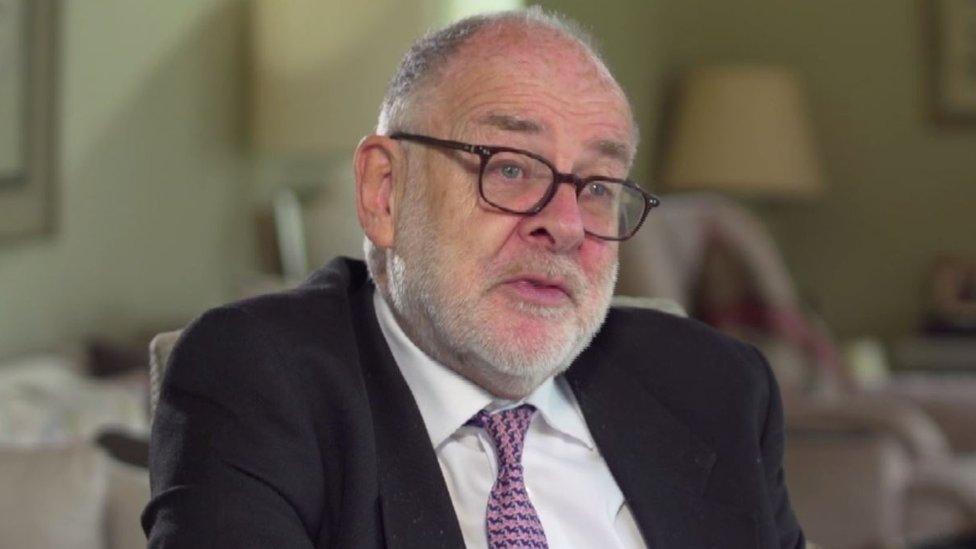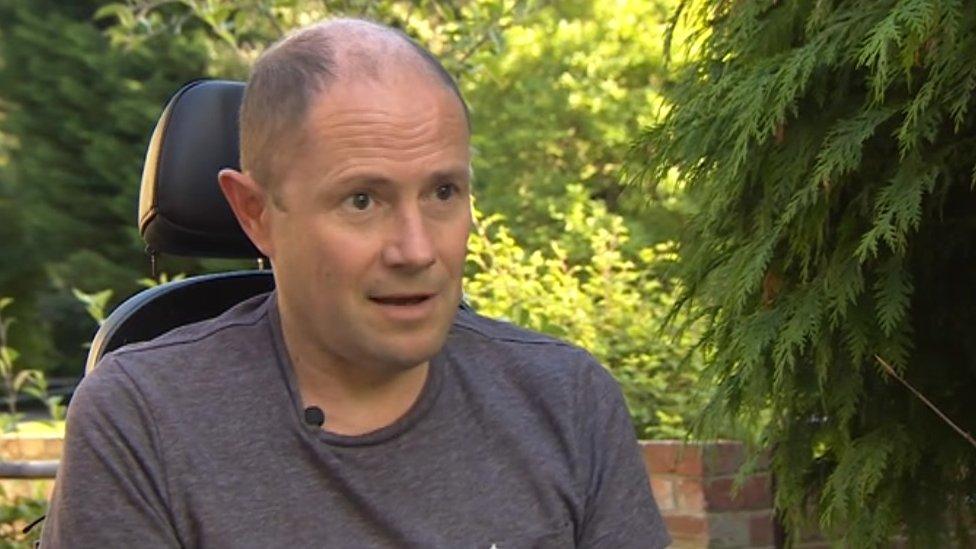Assisted dying law 'lacks compassion', Lord Falconer says
- Published

Lord Falconer attempted to legalise euthanasia by proposing an Assisted Dying Bill in 2013
A terminally ill man who campaigned to change the law on assisted dying has won the support of the former head of the judiciary.
Phil Newby, 49, from Rutland, was diagnosed with motor neurone disease in 2014 and cannot walk or use his hands.
He lost a High Court case to legalise assisted dying last year and his appeal for a judicial review was also refused.
Lord Falconer, Lord Chancellor in Tony Blair's Cabinet, said the law lacked compassion and needed urgent change.
Assisting a suicide is a crime England and Wales, punishable by up to 14 years in jail.
Lord Falconer, a Labour peer, who also served as solicitor general and was the first secretary of state for justice, attempted to legalise euthanasia in 2013 by proposing an Assisted Dying Bill for people with less than six months to live.
It was rejected in the House of Commons.
"The law is an absolute mess and totally lacks compassion," he said in support of Mr Newby.
"It is so urgently time for a change."

Phil Newby took his campaign for an assisted dying law to the High Court
Parts of the US, Canada and Australia have legalised assisted dying and Mr Newby wants UK judges to examine evidence from these countries.
"I'd like to see a law for what I would call people like me, people with a terminal and incurable illness who are nearing the end of their lives or incurably suffering and in constant pain."
But Dr Mark Houghton, a retired GP whose own chronic pain left him contemplating ending his life, said he believed the current law protected people.
"We don't need to end life early, we just don't need to," he said.
"There's always hard cases but hard cases make dreadful law."
You can see this story in full on BBC Inside Out East Midlands at 19:30 BST on Monday on BBC One, or via iPlayer for 30 days afterwards.

Follow BBC East Midlands on Facebook, external, Twitter, external, or Instagram, external. Send your story ideas to eastmidsnews@bbc.co.uk, external.
- Published30 January 2020

- Published19 November 2019

- Published23 October 2019
